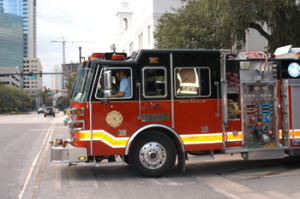Orlando off-duty cops, firefighters abuse cash payment system

By William Patrick | Florida Watchdog
TALLAHASSEE, Fla. — Police and firefighters can make extra money by leveraging their official duties off-the-clock for private vendors.
OFF-DUTY PAY: Orlando’s cash payment system for off-duty cops and firefighters allows for bags of cash, loose controls and weak record keeping.
It’s good work if you can get it.
A lack of oversight in one of Florida’s largest cities may have led to years of loose cash payments, at times in the range of tens of thousands of dollars, and insufficient record keeping to show exactly where the money was going.
In May, an anonymous whistleblower tipped off the Orlando City Attorney to an incident of possible corruption. The ensuing investigation focused on a single event, but highlights larger issues with the city’s off-duty cash payment system.
The tipster claimed the city fire department was allotted $42,000 in cash for one event, and the department’s events coordinator, Deputy Chief Chad Williamson, kept $20,000 as an administrative fee, according to a police internal affairs report.
The event was the Orlando Calling Concert, which took place at the Citrus Bowl in November 2011. It also involved a number of off-duty police.
A recent investigation showed the advance was actually $44,910. The cash was put in a bag, divvied-up, placed in envelopes and given to 55 separate fire department employees. Police received a separate cash payout. The same payment routine occurred for two events named in the report.
Williamson is suspected of taking the remaining Calling Concert money, possibly as little as $2,210, which he denies. The extent of Williamson’s record-keeping amounted to notes on a legal pad, which he said he discarded some time ago. Department officials never approached Williamson, who served as the events coordinator since 2006.
“There was a lack of accountability, control procedures and no requirement to maintain financial documents in place for an event hiring fifty-five fire department personnel making in excess of $40,000 in extra duty fees,” concluded investigator Cynthia Mills.
The vendor, Orlando Venues, said the fire department received cash advances from the company for two other events: $26,990 in 2012 and $29,600 last year.
Paying in cash has its advantages.
Vendors are charged an extra 15 percent administrative fee for opting to pay public safety workers through the city’s payroll service. The fee is waived for direct cash payments.
It’s the responsibility of fire department employees to pay taxes on the extra cash income rather than having taxes deducted from a city paycheck.
Hourly rates are regulated for off-duty work. In 2011, EMTs and paramedics made $38, supervisors $47 and commanders $55 — it’s increased slightly since. Per city rules, the rates are non-negotiable and consistent regardless of event.
According to the investigation, the rates paid to fire department workers for the Orlando Calling Concert exceeded the city approved limits.
A roster obtained through a public records request and provided to investigators by the Orlando Professional Fire Fighters union, showed handwritten notes indicating extra duty pay rates.
Williamson admitted fire department staff was paid roughly $10 more per hour, but blamed the Orlando Police Department’s event coordinator, Officer Dave Arnott, for the higher rates.
Williamson didn’t correct the supposed mistake and said none of the event staff ever complained.
The 49 fire department employees who appeared on the roster couldn’t produce payment documentation for investigators or could say with certainty they received payment as was indicated on the roster.
Orlando Fire Chief John Miller said he never approved the higher rates, but Williamson told investigators Miller knew about it.
Williamson has been recommended for suspension.
“It is still unclear due to the inability to conduct a proper audit of the exact amount paid to fire department personnel because spreadsheets and final rosters were discarded or destroyed,” said Mills.







